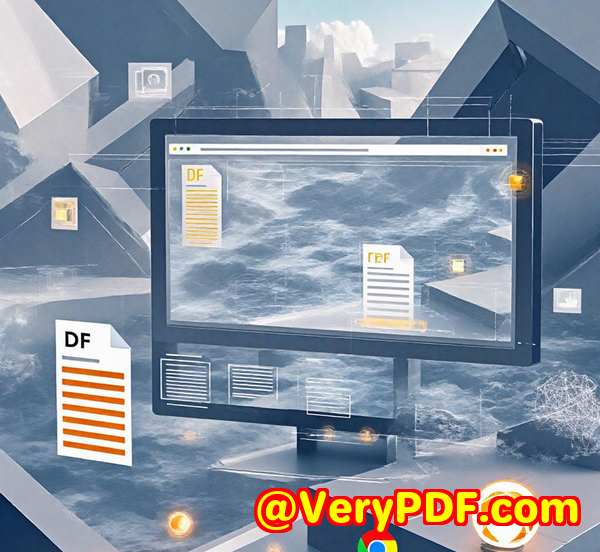How imPDF Solves the Common PDF Copy-Paste Problem with Accurate Text Extraction
Every time I had to grab text from a PDF, I hit a wall. You know the drillcopying a paragraph from a contract or report, only to get a jumbled mess in your clipboard. Formatting is off, text flows weirdly, or worse, some parts don't copy at all. If you've ever wrestled with PDF copy-paste headaches, you're not alone. For me, it wasn't just a minor annoyance; it was a daily drain on productivity, especially when I needed clean, accurate text for editing or data extraction.

Enter imPDF PDF REST APIs for Developers a game changer that seriously improved my workflow. This tool isn't just about simple conversions; it's a powerhouse designed to handle the trickiest PDFs with precision. Whether you're a developer, legal team, or analyst, it offers an elegant solution to the nightmare of PDF text extraction.
Why the PDF Copy-Paste Problem Is So Common
PDFs were built for consistent viewing, not easy editing or copying. Many PDFs are scanned images, locked-down, or packed with complex layouts, making it tough to pull out text cleanly. Traditional copy-paste often breaks down because:
-
Text layers are missing or corrupted in scanned documents.
-
Text is wrapped irregularly or includes hidden formatting.
-
Fonts and encodings don't map cleanly to clipboard text.
All this means manually cleaning up copied texttime lost that could be spent on real work.
How I Found imPDF PDF REST APIs for Developers
I came across imPDF during a project where I needed to automate data extraction from hundreds of legal documents. Manually copying and formatting was a no-go, and most tools I tried either choked on the files or delivered clunky outputs.
imPDF promised a cloud-based REST API library powered by trusted Adobe PDF Library tech a serious plus. What caught my eye was its huge range of APIs covering everything from PDF to Word, Excel, HTML, to text extraction and editing all accessible via simple REST calls. No heavy installs, just clean, scalable integration.
Key Features That Changed the Game for Me
-
Accurate PDF to Text Extraction API
The core strength of imPDF lies in its ability to extract text precisely, preserving the original reading order and layout. This made a massive difference when I processed scanned contracts and reports with mixed fonts and columns. No more tangled text blocks or missing words.
For example, I was able to feed multi-page PDFs into the API and get back clean, ready-to-edit text files. This streamlined my document review workflow overnight.
-
PDF to Table & PDF to Excel APIs
Data tables inside PDFs are usually a nightmare to extract cleanly. imPDF's table recognition API is smart enough to detect rows and columns accurately. I used this feature to convert financial reports directly into Excel sheets saving hours on manual reformatting.
-
Online Validation and Code Generation
What impressed me most was the API Lab an online interface where you can upload PDFs, customise options, and see results immediately. It even spits out sample code in languages like Python, JavaScript, and C#, which made integrating the API into my existing app a breeze.
How imPDF Stands Out Against Other Tools
Before imPDF, I used various desktop apps and open-source tools that promised OCR and text extraction. They often fell short because:
-
OCR accuracy was patchy on poor-quality scans.
-
Text layout was mangled, losing meaning.
-
Integration required complex setups.
imPDF's cloud-first REST APIs sidestep those issues. You don't need to worry about platform dependencies or server maintenance. Plus, the Adobe PDF Library backing means you get enterprise-level accuracy.
Who Should Use imPDF PDF REST APIs for Developers?
-
Developers who want to embed powerful PDF processing in their applications.
-
Legal teams handling scanned contracts and case files.
-
Financial analysts extracting tables and data from reports.
-
Researchers and academics digitising paper archives.
-
Businesses automating document workflows with minimal coding.
If you regularly wrestle with PDFs and want to automate text extraction or conversion, this tool will save you a ton of headaches.
Practical Benefits I Experienced
-
Cut my document processing time by 70%.
-
Eliminated manual clean-up of copied text.
-
Reduced errors from faulty text extraction.
-
Easily handled diverse file types scanned PDFs, image-heavy docs, multi-column layouts.
-
Seamless integration with existing systems, thanks to REST API design.
Final Thoughts
If you're battling the common PDF copy-paste problem and need reliable, accurate text extraction, I'd highly recommend giving imPDF PDF REST APIs for Developers a shot. It's a developer-friendly, robust solution that makes extracting, converting, and editing PDFs painless.
Ready to boost your productivity? Click here to try it out for yourself: https://impdf.com/
Start your free trial now and transform how you handle PDFs forever.
FAQs
Q: Can imPDF extract text from scanned image PDFs?
A: Yes, imPDF uses advanced OCR technology to extract text accurately even from scanned documents and images within PDFs.
Q: What programming languages does imPDF support for integration?
A: imPDF provides REST APIs compatible with virtually any language, including Python, JavaScript, C#, Java, PHP, and more.
Q: Does imPDF preserve the original PDF formatting during text extraction?
A: imPDF's extraction APIs maintain the natural reading order and structure, minimising formatting errors common in other tools.
Q: Can I convert PDF tables directly into Excel spreadsheets?
A: Absolutely. imPDF has dedicated PDF to Table and PDF to Excel REST APIs designed specifically for accurate table extraction.
Q: Is there a way to test imPDF APIs before integrating?
A: Yes, the API Lab allows you to experiment with your documents online and generates sample code for easy integration.
Tags / Keywords
-
PDF copy-paste problem
-
Accurate PDF text extraction
-
PDF REST APIs for developers
-
Extract PDF tables to Excel
-
Automate PDF text extraction